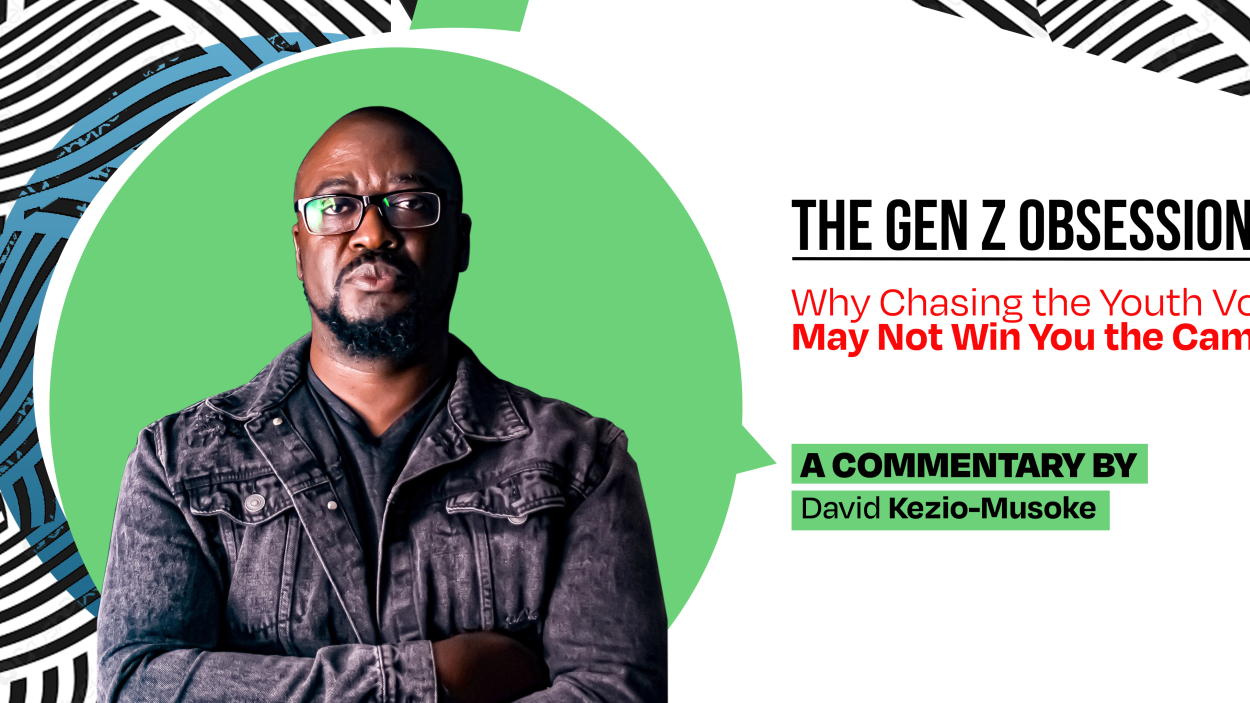The Gen Z Obsession and Why Chasing the Youth Vote May Not Win You the Campaign

THE WRITER: David Kezio-Musoke (Graphic/ Business Insights Africa)
In nearly every creative brief today, there is one phrase that never fails to appear: “We need to attract Gen Z.”
It has become the most overused, misunderstood, and misapplied statement in modern marketing. Yes, Gen Z is an important demographic—16% of the world’s population is between the ages of 15 and 24. When you include children under 15, nearly 40% of the global population is under 25.
But here's the catch: just because Gen Z is large in numbers doesn’t mean they should be your campaign’s sole focus.
Brands are obsessed with Gen Z for two main reasons: they are culturally loud and dominate digital spaces.
They set trends, drive hashtags, and shape conversations on TikTok, Instagram, and YouTube. Naturally, brands feel the pressure to speak their language, mimic their memes, and align with their humour.
But here's the truth: Gen Z can detect forced content in three seconds flat. You can’t TikTok your way into their hearts with a dance trend or slang-heavy caption. Strategy isn’t resolved just by hiring someone born after 2000.
Too many brands confuse imitation with relevance. “We saw what Brand X did … let’s do that too!” However, Brand X spent years building authenticity, while you are just starting. Wanting to be “funny on Twitter like MTN” doesn’t mean you’ve earned the right to crack political jokes. Wanting to “go viral on TikTok” because a certain beverage does so doesn’t imply that you have built a brand Gen Z wants to follow.
It's always better to ask: are we doing this because it’s meaningful, or because we’re afraid of being left out?
Here is another perspective: while Gen Z makes a lot of noise online, they do not necessarily make the biggest purchases. They influence culture, yes, but Gen Z isn’t always the one holding the purse strings. In most markets, particularly in Africa, Millennials and Gen X still hold economic power.
So before you shape your entire campaign to impress a 19-year-old content creator, pause and ask: who is really buying what we are selling?
The rush to impress Gen Z often leads brands to overlook the most important part of communication: building reputations, earning trust, and solving real problems for real people. So when the next brief says, “We need Gen Z on TikTok,” ask: what are we actually trying to say? Why would anyone—even Gen Z—care? Does this feel real, relevant, and rooted in culture?
Gen Z matters, but they are not the silver bullet to every brand problem. The key to successful marketing is balance. Understand your audience—all of them. Be clear on your value. Communicate authentically, and do not jump on trends merely to keep up.
The writer is a PR practitioner and can be reached on email [email protected]


